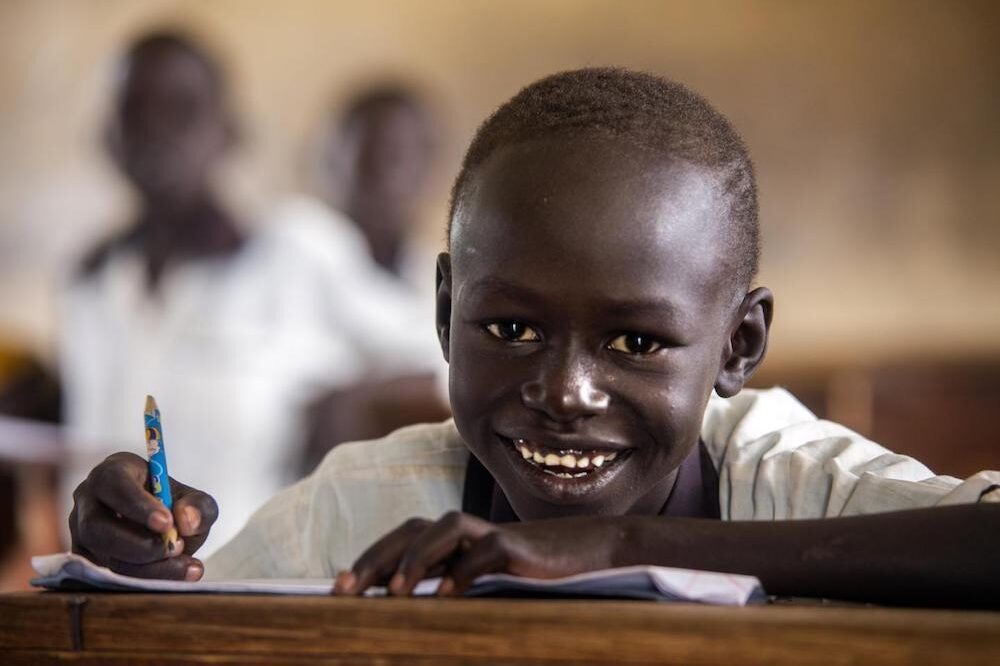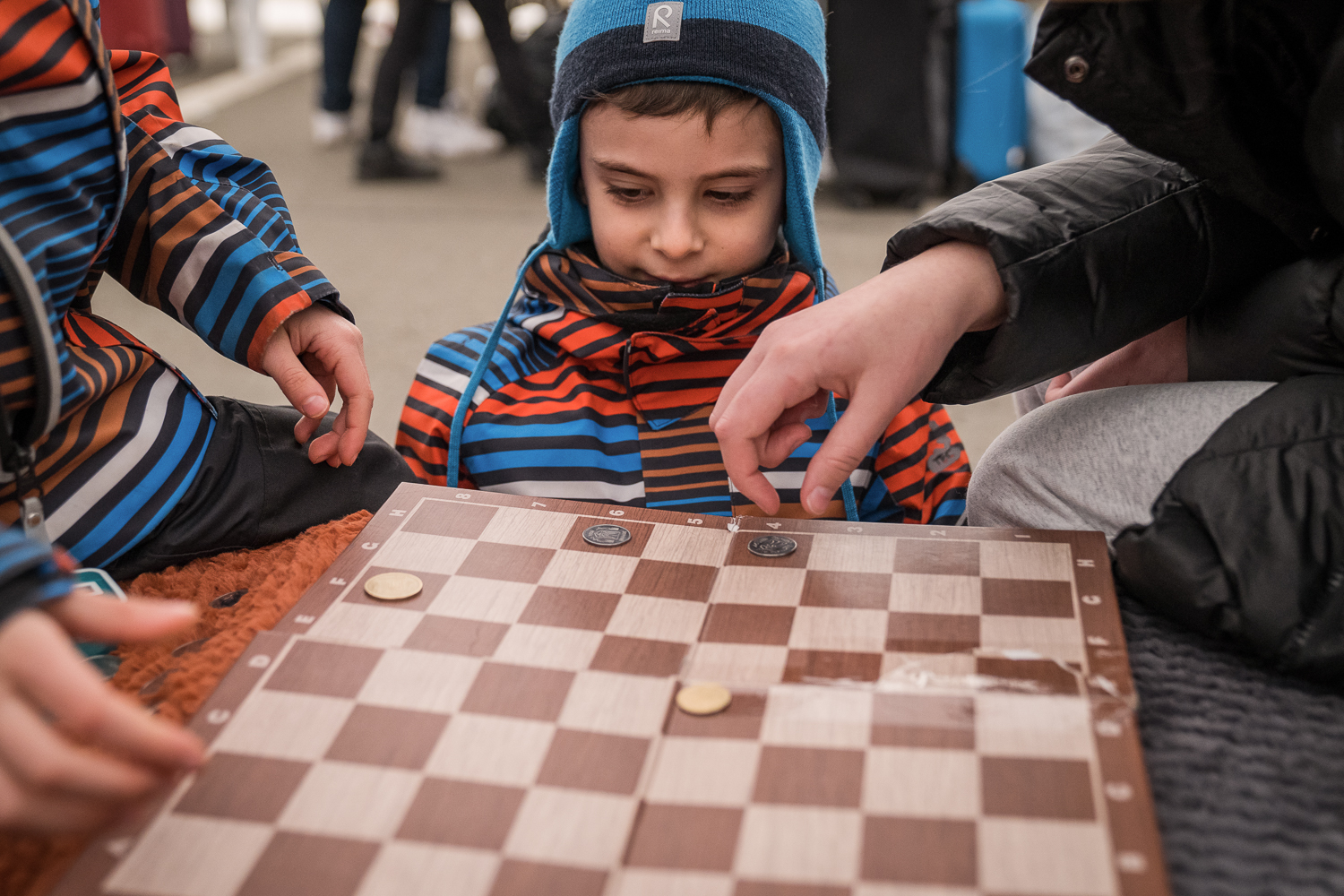
Five things you need to know this week about global education

Education in emergencies
A major donation means Education Cannot Wait becomes a $1billion fund helping children in humanitarian crises to access learning.
Education Cannot Wait says thanks a billion
Many more children affected by humanitarian crises will get access to learning after a major donation took Education Cannot Wait’s funding past $1billion.
Germany is now the biggest backer of the global fund for education in emergencies, after giving 200million euros ($226million) to take its total donations to $362million.
After campaigning led by Theirworld, Education Cannot Wait (ECW) was launched in 2016 to help children caught in conflicts, displacement, climate emergencies and other crises. It has now raised $1.1billion and supported almost five million children and adolescents in 42 countries with inclusive, quality education.
"Thank you to Minister @SvenjaSchulze68 and the government & people of ????????. Today, you've taken leadership for education in crises & emergencies and in support of #ECW!" ~@YasmineSherif1
— Education Cannot Wait (@EduCannotWait) January 27, 2022
???? https://t.co/96953LpeXq@BMZ_Bund @GermanyUN @GermanyUNGeneva @GermanyDiplo @giz_gmbh pic.twitter.com/x89Na9SvEf
With another $1billion-plus leveraged through its in-country programmes, ECW has become a $2billion fund in just over five years.
Germany’s Federal Minister Svenja Schulze said: “Education is the key that enables millions of girls and boys to break through the cycle of poverty and lead a dignified life. We have a shared responsibility not to lose this generation.”
ECW Director Yasmine Sherif said: “We warmly thank the people of Germany and the German government for this generous, ground-breaking contribution. Education provides safety, hope and opportunity for the millions of children and adolescents worldwide impacted by conflicts, Covid-19 and climate change.”
ECW’s biggest donors after Germany are the United Kingdom and Denmark.
Back-to-school drive in Iraq
About 50,000 children and adolescents in Iraq who dropped out of school or had never attended are being targeted by a back-to-learning campaign.
UNICEF has trained 330 teachers, social workers and education staff in several regions to support the return of children to schools through community mapping, group discussions and household visits.
Thousands have dropped out of education during the pandemic. But more than 14,000 children have already enrolled or returned to formal or informal education through the new programme, which is coordinated with the Iraq and Kurdistan education ministries.
One of them – Dunya, 13, from Erbil – said: “I dropped out from school due to health issues. Now, thanks to the campaign, I am back to school. This is great.”
School closures still impact 600m
More than 616million students remain affected by full or partial school closures caused by the pandemic, according to new data from UNICEF.
In low and middle-income countries, learning losses have left up to 70% of 10-year-olds unable to read or understand a simple text, up from 53% pre-pandemic.
Meanwhile, Bangladesh has closed all schools for two weeks to counter an “alarming” rise in Covid-19 infections, just four months after ending an 18-month classrooms closure.
Health Minister Zahid Maleque said: “We had reopened the schools but recently noticed an uptick in the virus cases in the schools and colleges. Those students are coming to hospitals for medical treatment. This is really alarming.”
The United Nations said 37million Bangladeshi children had their education disrupted by one of the world’s longest pandemic school closures.
Teachers and parents rally to reopen Tongan schools
The volcano and tsunami that hit Tonga has affected every single school, Save the Children has revealed. Some of the Pacific island nation’s 150 schools have been completely destroyed, while many others are badly damaged.
Parents and teachers are working hard to clear inches of volcanic dust to get as many schools reopened next week when the new term is due to begin. But many classrooms have been damaged beyond repair, along with textbooks and furniture.
Maa’imoa Mafile’o, Tonga Country Lead for Save the Children, said: “We expect to see more children in the one classroom, sharing the same materials. Families forced to relocate will be struggling to get back to school, even to have school materials and uniforms.”
Save the Children is shipping classroom kits, chalkboards, schools bags and school recreation kits, as well as large tents for temporary classrooms.
UN chief says world must prioritise education
The United Nations Secretary-General has called on the international community to make education a priority for the pandemic recovery and beyond.
Speaking on the International Day of Education this week, Antoñio Guterres said learning was key to ensuring all of the Sustainable Development Goals are achieved.
He said: “Some 1.6billion school and college students had their studies interrupted at the peak of the pandemic – and it’s not over yet.”
“Education is a pre-eminent public good and an essential enabler for the entire 2030 Agenda for Sustainable Development.” He said the global community “cannot afford to be agnostic about its provision, quality and relevance”.
More news

